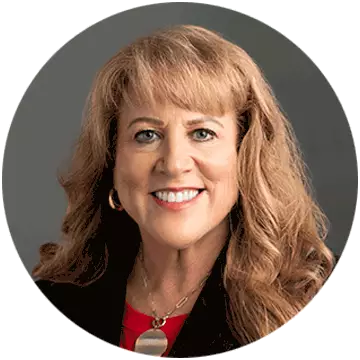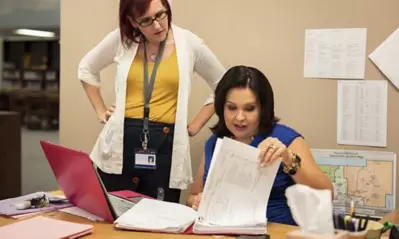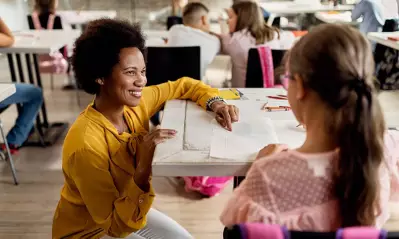What is curriculum and instruction in education?

Written by Michael Feder

Reviewed by Pamela M. Roggeman, EdD, Dean, College of Education

The field of education is supported by two main pillars: one is curriculum. The other is instruction. Curriculum is the material taught to students in a school or educational program. Instruction refers to methods and strategies to teach that material. These two components work together to create an educational environment that is both standardized (in terms of what is taught) and individualized (in terms of how the students learn).
Purposes of curriculum and instruction
There are many theories surrounding curriculum and instruction, many of which are taught in education programs, including Master of Arts in Education degrees. By learning about these different approaches to education, teachers can choose an effective instructional method and improve their students’ learning experience.
Curriculum and instruction have two different purposes. The curriculum ensures students gain specific knowledge and skills. States establish a list of standards that each K–12 school’s curriculum should encompass to ensure students are at an appropriate level of learning.
While the curriculum is consistent across schools and classrooms, instruction can be individualized. Students have different learning styles and needs, and many teachers respond accordingly with various instructional methods.
How is a curriculum developed?
Instructional coordinators develop a curriculum by determining the product component and the process component. The product component is based on the final product. This means that grades and test results are used to determine if students have learned the material. Essentially, it measures how well students absorbed the lesson and keeps track of whether they are meeting expectations of their grade level.
The process component, meanwhile, focuses on how a student’s learning develops over time. A variety of instructional methods can influence the process component. Both components are important to developing a well-rounded curriculum.
A curriculum is based on extensive educational research, the input of the state and local educational standards, and the type of school. Once a curriculum is established, students in the same grade at the same school are taught the same material, no matter which teacher they have.
Professionals in curriculum and instruction work directly with teachers and use their knowledge to:
Types of instructional methods
In the world of K–12 education, teachers can choose from several types of instructional methods. In fact, it’s rare to find a teacher who uses one instructional method exclusively. Many teachers have a preferred method but will incorporate other methods to accommodate all their students.
It’s important to understand that instruction is not a one-size-fits-all practice. Teaching with multiple methods helps students with different learning styles get the most out of their learning experiences.
Lecture-based instruction
The lecture-based instruction method is the traditional classroom model many people are familiar with. With this method, the teacher stands at the front of the classroom and delivers a lesson. A visual presentation or notes on a whiteboard, chalkboard or interactive board typically accompany the lecture.
The lecture method has been shown to have a positive impact on students’ immediate knowledge retention, and many teachers regularly give lectures. It cultivates listening skills in students while also encouraging the development of note-taking proficiency and the ability to ask questions to deepen understanding.
Hands-on learning
Hands-on learning involves students developing knowledge through practical experience. Instead of listening to a lecture on a chemical reaction, for example, a student might experiment under a teacher’s guidance. Or, instead of reading Hamlet and listening to a lecture, students may produce the play themselves in their classroom.
Hands-on learning strives to teach students in the moment and how to learn for the rest of their lives. Hands-on learning is a newer technique than the lecture-based approach, but many teachers have seen benefits when pairing the two approaches.
What skills are needed for this field?
Curriculum and instruction specialists need a wide range of skills to be successful in their roles. These include hard skills, such as in-depth knowledge of analytical, communication, decision-making, interpersonal and leadership skills.
However, these specialists also depend on soft skills. Curriculum and instruction specialists often work directly with teachers to improve students’ learning experience. It’s important to have skills such as compassion and patience.
Learn more about curriculum and instruction
If you’re interested in the field of curriculum and instruction, University of Phoenix offers these degree and certificate programs:
- Master's in Curriculum and Instruction online
- Post Master's Certificate in Curriculum and Instruction
- Post Master's Certificate in Educational Technology
Contact University of Phoenix for more information.

ABOUT THE AUTHOR
A graduate of Johns Hopkins University and its Writing Seminars program and winner of the Stephen A. Dixon Literary Prize, Michael Feder brings an eye for detail and a passion for research to every article he writes. His academic and professional background includes experience in marketing, content development, script writing and SEO. Today, he works as a multimedia specialist at University of Phoenix where he covers a variety of topics ranging from healthcare to IT.

ABOUT THE REVIEWER
As dean of the University of Phoenix College of Education, Pamela Roggeman has spent over a decade in higher education teacher preparation in both the public and private sector. Her experience has included national partnerships that help to advance thought leadership in the field of education. Dr. Roggeman also serves as the President of the Arizona Educational Foundation’s Board of Directors.
This article has been vetted by University of Phoenix's editorial advisory committee.
Read more about our editorial process.


